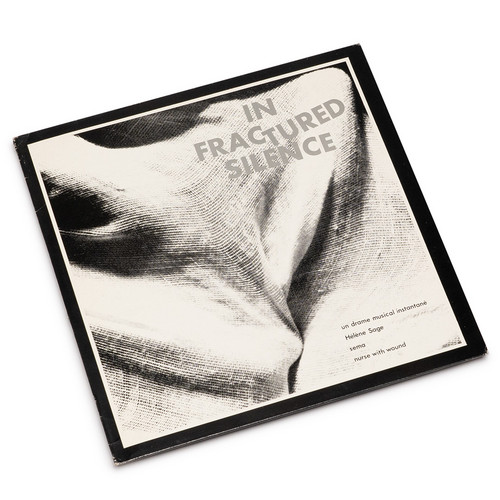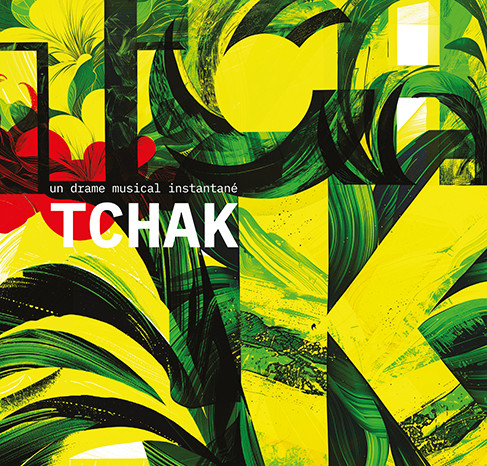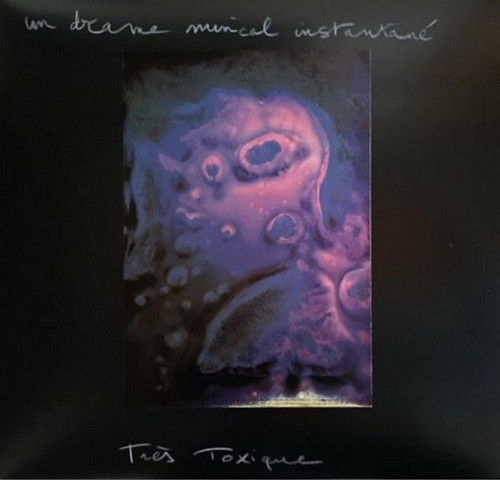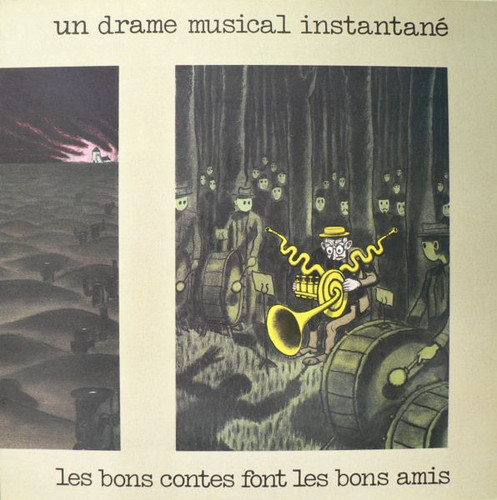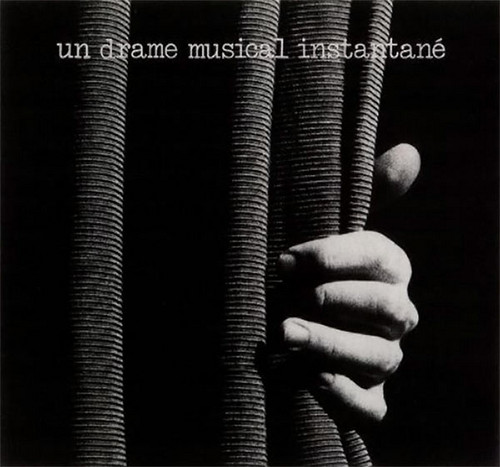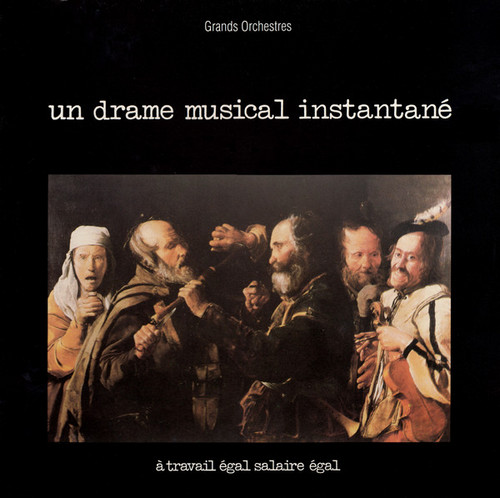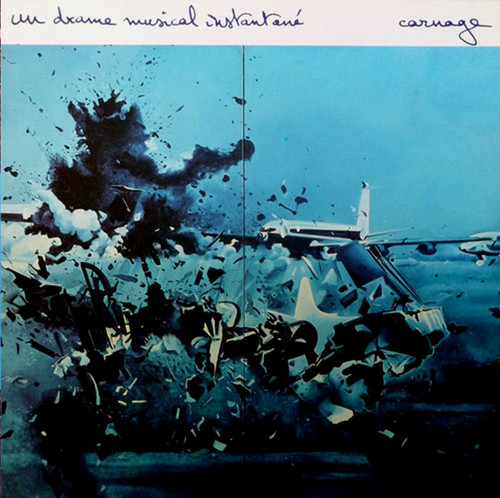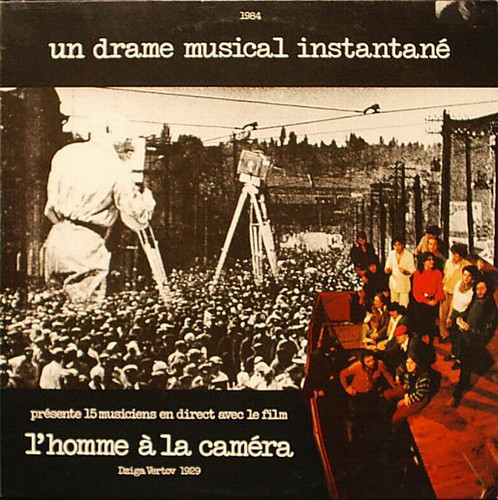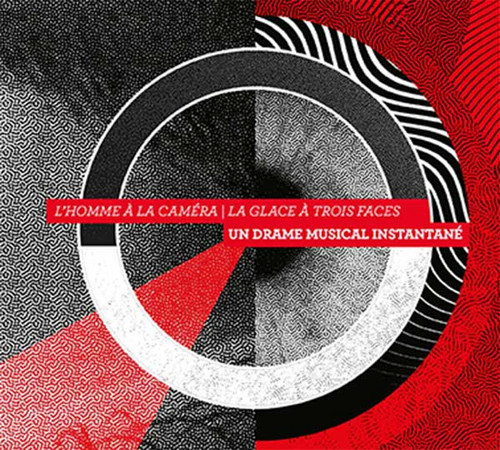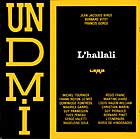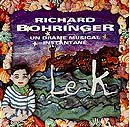Un Drame Musical Instantané
In Fractured SIlence
Original edition of superb early (1984) United Dairies compilation presenting Un Drame Musical Instantané, Hélène Sage, Sema and Nurse With Wound. With original insert and Grrr Records catalogue.
Tchak
Un Drame Musical Instantané were founded in 1976, featuring Jean-Jacques Birgé, Bernard Vitet and Francis Gorgé. Their aim was to promote collective musical creation, co-signing their albums, which they consider as artworks in themselves, or their live shows which they tried to renew every time they played. Their sound was created with many influences: They borrowed their sources from rock (synthesizer player Birgé and guitarist Gorgé, both authors of the album, Défense de); jazz (trumpeter Vite…
Très Toxique
*Deadstock. Last 85 copies. In process of stocking* Très toxique is the first ever recording of Un Drame Musical Instantané as a trio, three weeks before Trop d’Adrénaline Nuit, but already a year and a half after Défense De by Birgé Gorgé Shiroc (Nurse With Wound List). On December 21, 1976, it was the first time the three musicians met together in the basement of Studio GRRR. They had no idea what they were going to play, but the session was full of energy. Jean-Jacques Birgé plays the ARP 260…
Les Bons Contes Font Les Bons Amis
*2023 stock* Un Drame Musical Instantané were founded in 1976, featuring Jean-Jacques Birgé, Bernard Vitet and Francis Gorgé. Their aim was to promote collective musical creation, co-signing their albums, which they consider as artworks in themselves, or their live shows which they tried to renew every time they played. Their sound was created with many influences: They borrowed their sources from rock (synthesizer player Birgé and guitarist Gorgé, both authors of the album, Défense de); jazz (t…
Rideau!
*In process of stocking. This second-hand record is available through our collaboration with Parisian shop Dizonord, all items are in NM condition.* Rideau! was Un Drame Musical Instantane's second album, originally released in 1980 on the group's own GRRR label. Since its creation in 1976, featuring Jean-Jacques Birgé, Bernard Vitet and Francis Gorgé, the group has decided to promote collective musical creation, co-signing their albums, which they consider as artworks in themselves, or their li…
À Travail Égal Salaire Égal
*In process of stocking. This second-hand record is available through our collaboration with Parisian shop Dizonord, all items are in NM condition.* À Travail Égal Salaire Égal was Un Drame Musical Instantane's third album, originally released in 1982 on the group's own GRRR label. Since its creation in 1976, featuring Jean-Jacques Birgé, Bernard Vitet and Francis Gorgé, the group has decided to promote collective musical creation, co-signing their albums, which they consider as artworks in them…
Carnage
Un Drame Musical Instantané were founded in 1976, featuring Jean-Jacques Birgé, Bernard Vitet and Francis Gorgé. Their aim was to promote collective musical creation, co-signing their albums, which they consider as artworks in themselves, or their live shows which they tried to renew every time they played. Their sound was created with many influences: They borrowed their sources from rock (synthesizer player Birgé and guitarist Gorgé, both authors of the album, Défense de); jazz (trumpeter Vite…
L'Homme à la Caméra
** Original 1984 copies ** GRRR presents L'Homme à la Caméra by Un Drame Musical Instantané. Un Drame Musical Instantané is a collective of French composers led by Jean-Jacques Birgé. The French group, founded in 1976 presents original, unclassifiable, inventive music, which drifts from jazz to electronic music and contemporary music. In 1984, they composed their own score to Dziga Vertov’s groundbreaking 1929 film The Man with a Movie Camera.
L'homme à la Caméra / La Glace à Trois Faces
"Un Drame Musical Instantané were founded in 1976, featuring Jean-Jacques Birgé, Bernard Vitet and Francis Gorgé. Their aim was to promote collective musical creation, co-signing their albums, which they consider as artworks in themselves, or their live shows which they tried to renew every time they played. Their sound was created with many influences: they borrowed their sources from rock (synthesizer player Birgé and guitarist Gorgé, both authors of the album, Défense de); jazz (trumpeter Vit…
L\'hallali
Vocal pieces featuring the late Frank ROYON LE MÉE in Le poil et la plume (text by Michel TOURNIER) followed by an opera-bouffe where animals play hide and seek with Death ! (libretto by Régis FRANC).
Le K
Richard Bohringer joins Un Drame Musical Instantane (Jean-Jacques Birge, Bernard Vitet, and Francis Gorge) in vocal (in French) and musical improvisations. They use found sounds, talking (in French), music, singing, and playing instruments. It's like a jamboree, good natured and spirited, but with a beat.
